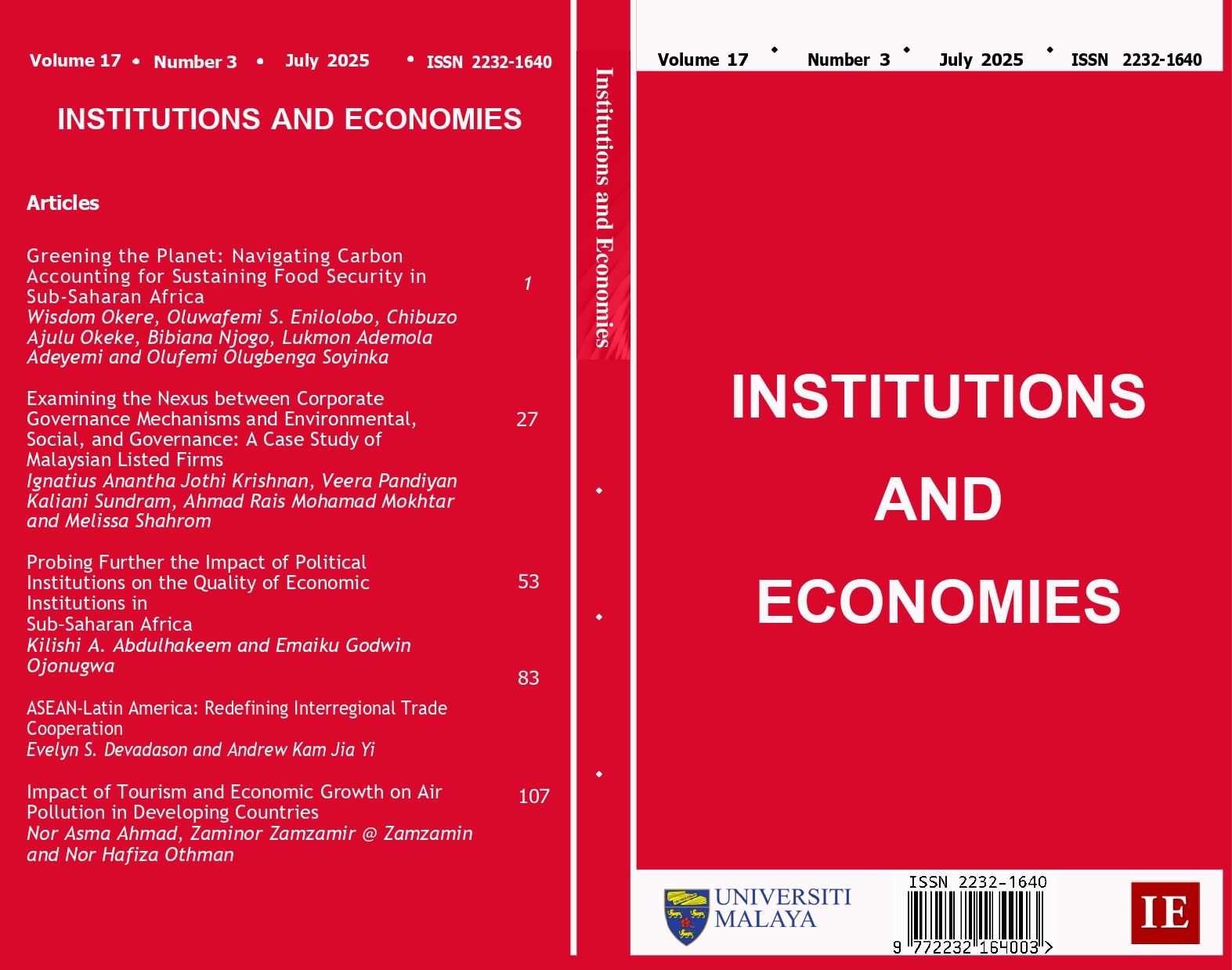Probing Further the Impact of Political Institutions on the Quality of Economic Institutions in Sub–Saharan Africa
DOI:
https://doi.org/10.22452/IJIE.vol17no3.3Keywords:
Rule of law, Government effectiveness, Economic institutions, Pool mean group (PMG), Sub-Saharan AfricaAbstract
Evidence in recent literature underscores the fact that political institutions
are key determinants of the quality of economic institutions, particularly in Africa.
However, the question of which political institutions matter most remains unresolved.
This paper probes the evidence further by investigating the relative effect of four different
categories of political institutions on different components of economic institutions in
Sub-Saharan Africa. The Im-Pesaran-Smith (IPS) panel unit root test technique is used
to evaluate the stationarity property of the variables. Three alternative long-run panel
cointegration regression techniques, namely mean group (MG), pooled mean group
(PMG) and dynamic fixed effects (DFE), are used to gauge the specified model. The
most efficient among them is chosen using the Hausman specification test. The findings
reveal that political institutions do not have short-run effects on the quality of economic
institutions. However, they have significant positive impacts on both the overall economic
institution and its components in the long run. Rule of law has the most consistent
impact, followed by government effectiveness, while quality of democracy is the least
consistent. Therefore, policymakers need to intensify efforts to ensure adherence to rule
of law, and efforts should also be directed towards improving government effectiveness.
Downloads
Downloads
Published
How to Cite
Issue
Section
License
Submission of a manuscript implies: that the work described is original, has not been published before (except in the form of an abstract or as part of a published lecture, review, or thesis); that is not under consideration for publication elsewhere; that its publication has been approved by all co-authors, if any, as well as tacitly or explicitly by the responsible authorities at the institution where the work was carried out. Transfer of copyright to the University of Malaya becomes effective if and when the article is accepted for publication. The copyright covers the exclusive right to reproduce and distribute the article, including reprints, translations, photographic reproductions, microform, electronic form (offline and online) or other reproductions of similar nature.
An author may self-archive the English language version of his/her article on his/her own website and his/her institutions repository; however he/she may not use the publishers PDF version which is posted on www.ijie.um.edu.my. Furthermore, the author may only post his/her version, provided acknowledgement is given to the original source of publication and a link must be accompanied by the following text: The original publication is available at www.ijie.um.edu.my.
All articles published in this journal are protected by copyright, which covers the exclusive rights to reproduce and redistribute the article (e.g. as offprint), as well as all translation rights. No material published in this journal may be reproduced photographically or stored on microfilm, in electronic database, video disks, etc., without first obtaining written permission from the publishers. The use of general descriptive names, trade names, trademarks, etc., in this publication, even if not specifically identified, does not imply that these names are not protected by the relevant laws and regulations.
The copyright owners consent does not include copying for general distribution, promotion, new works, or resale. In these cases, specific written permission must first be obtained from the publishers.








